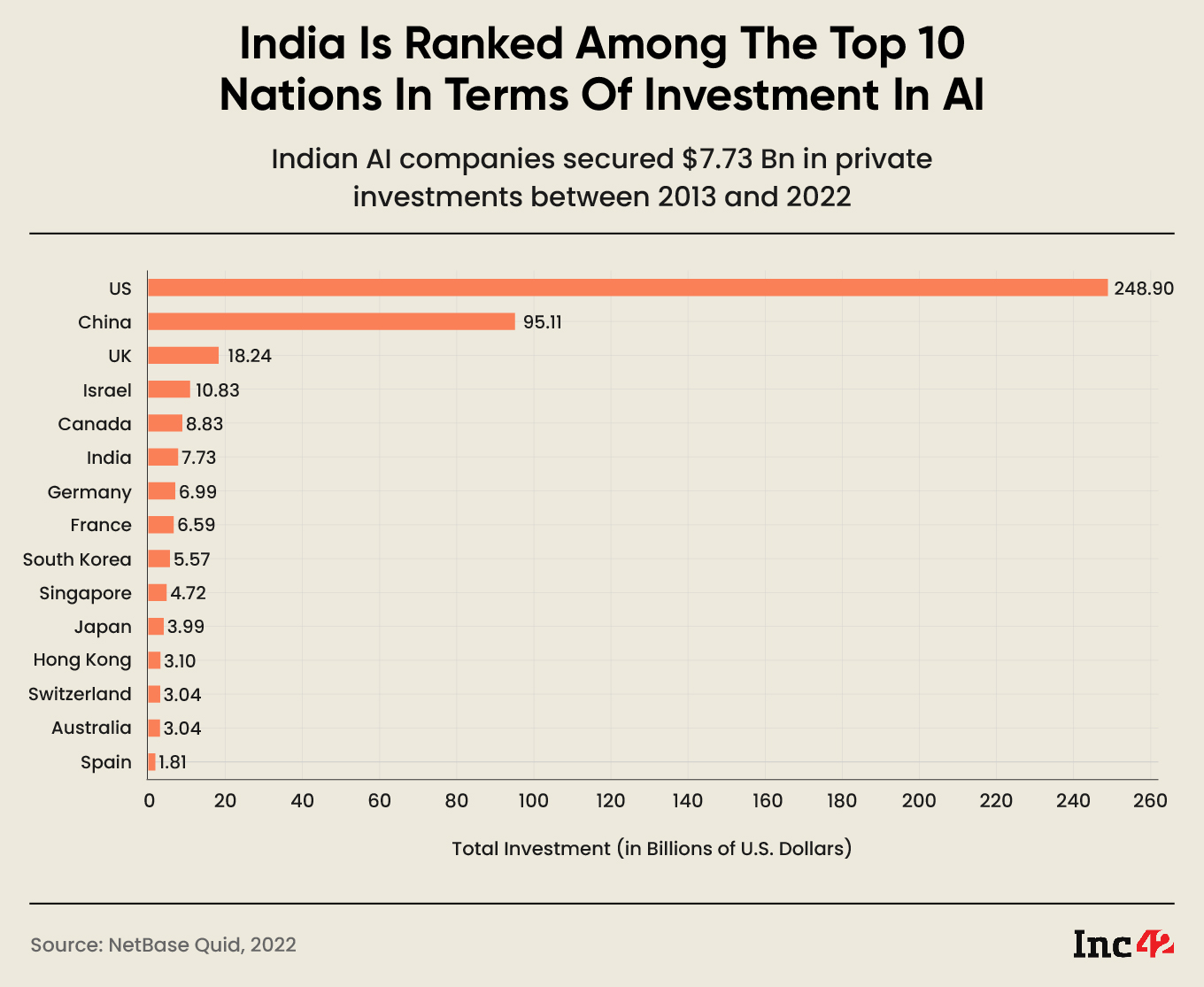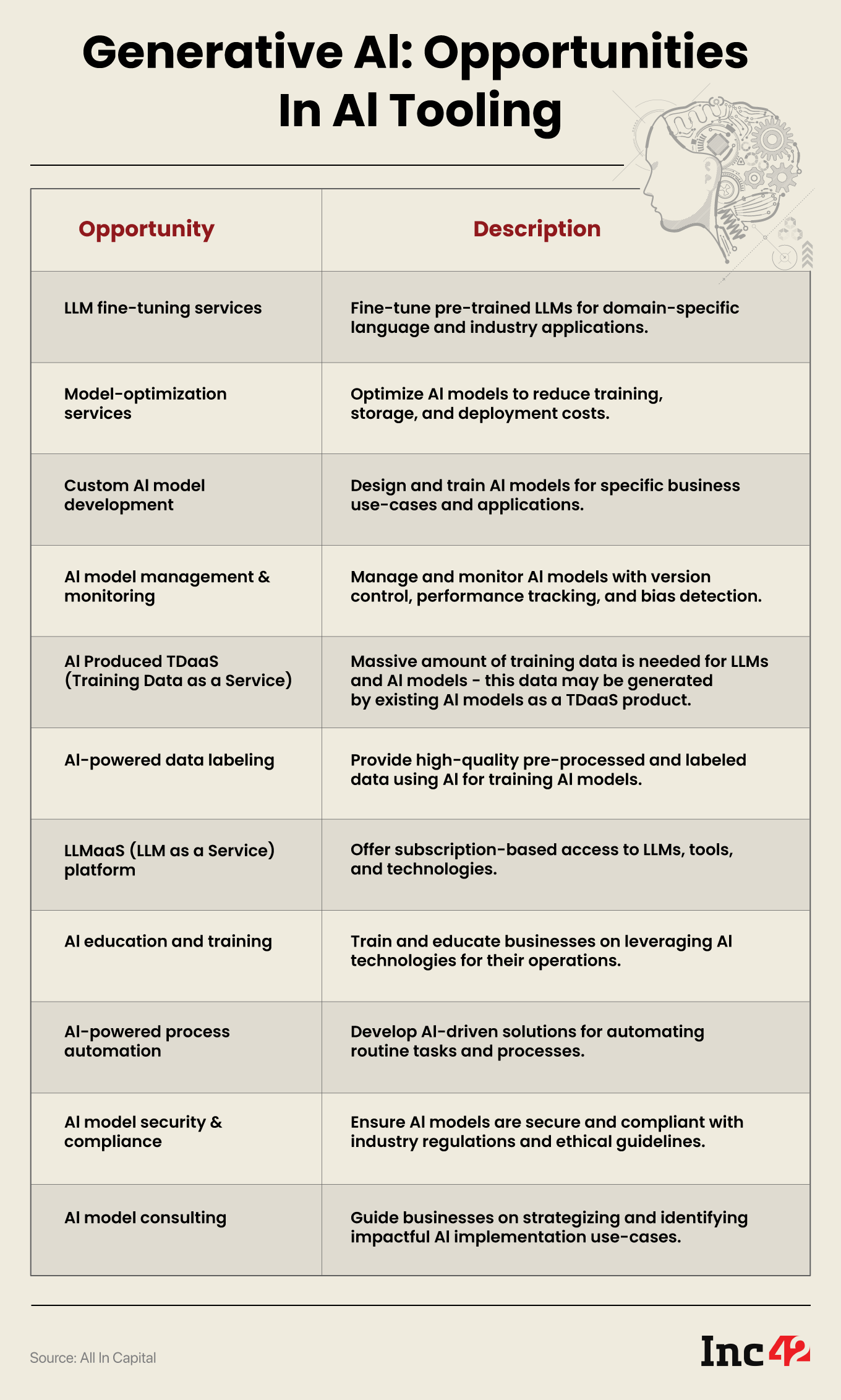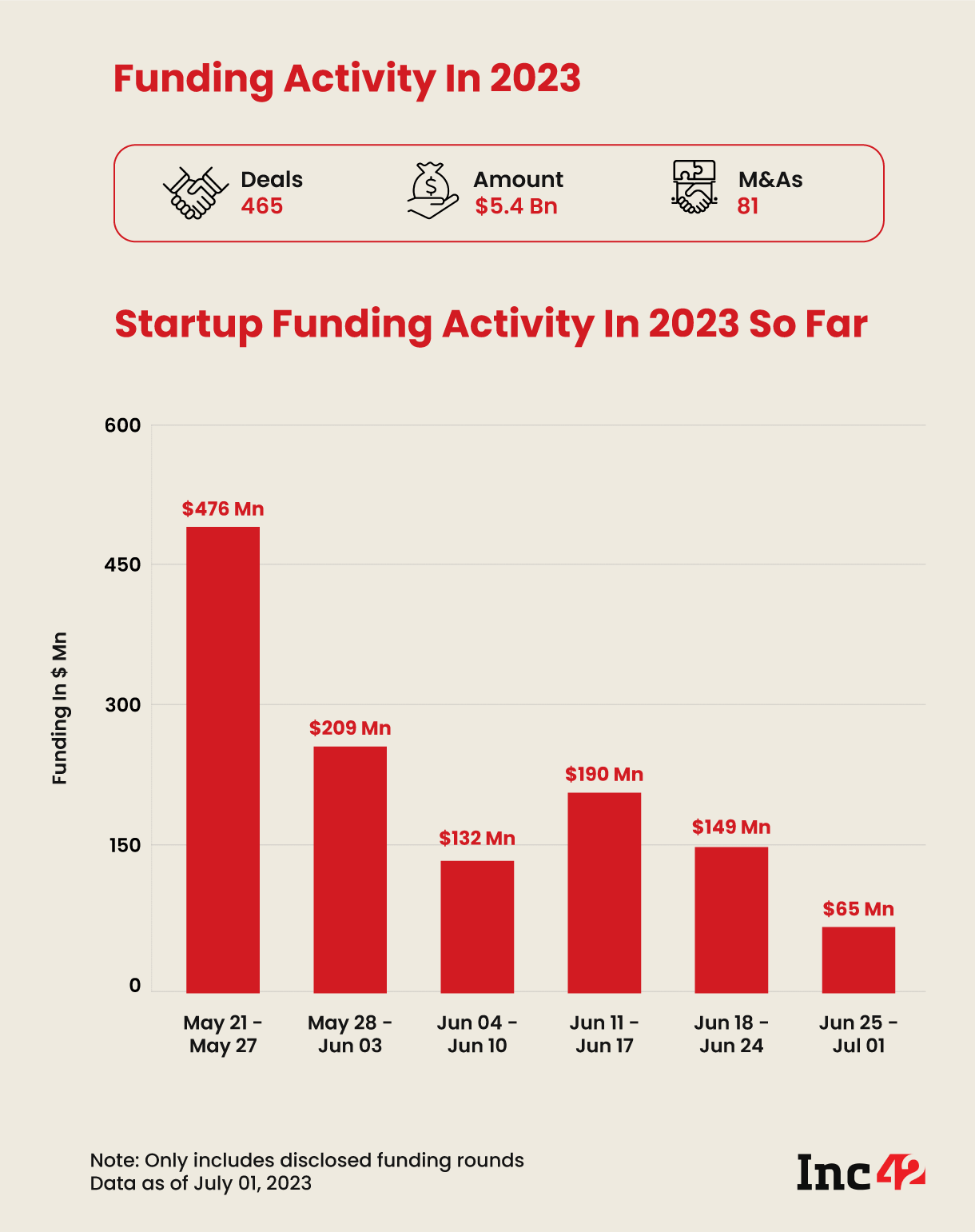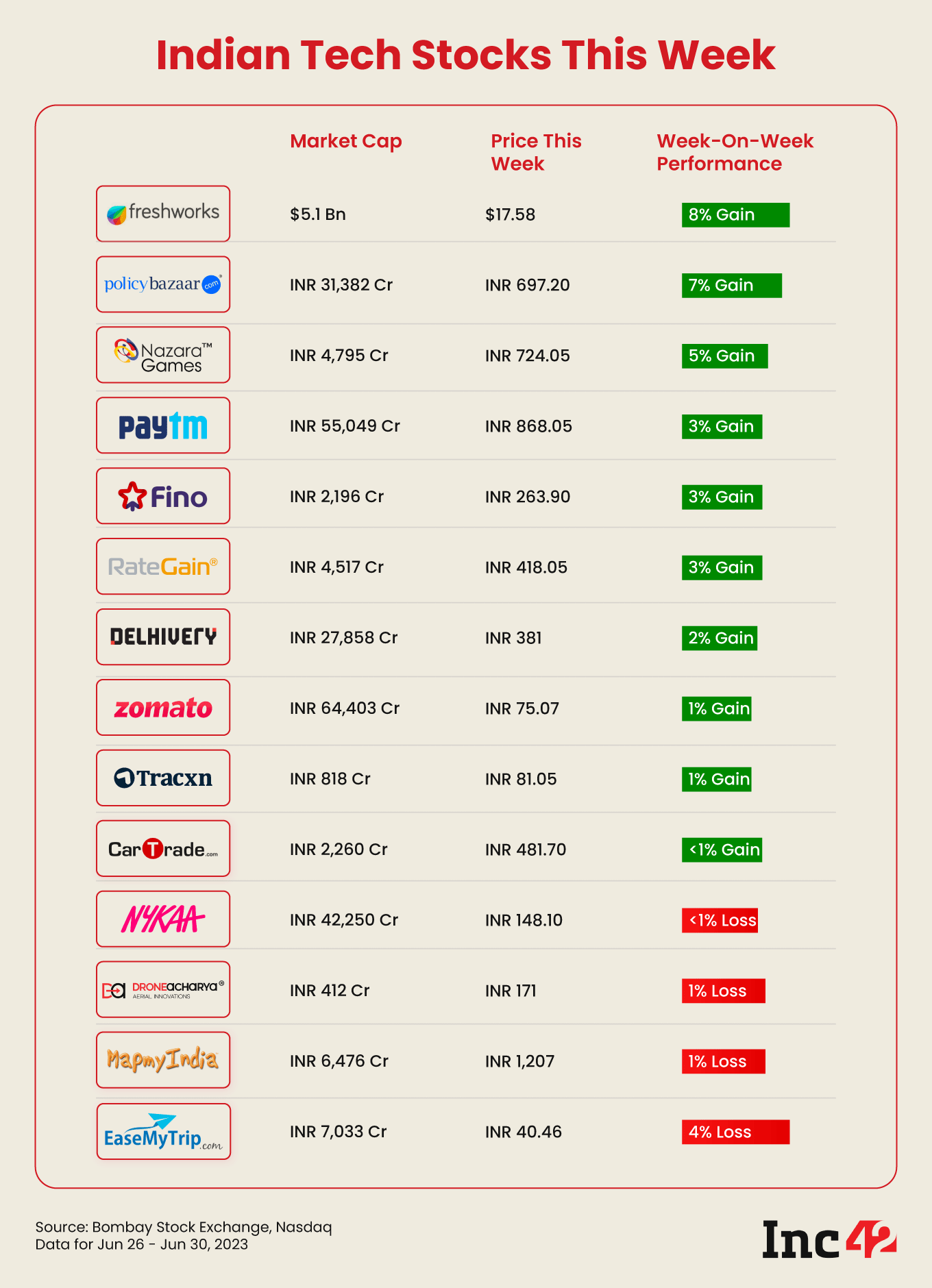India has grown from a services giant to a product-led tech economy and startups can leverage that past to build on the generative AI opportunity
It’s the age of AI and we are just living in it. In just over a century, humanity has bounced from one pandemic to another, and from the industrial revolution, we are well in the era of artificial intelligence, and specifically generative AI.
It’s well and truly here in India too, with startups sitting in an advantageous position even though big tech giants have taken the first-mover advantage.
And like the industrial revolution inspired a host of small businesses and forced the workforce to skill up and learn their way around new machinery, we are at the cusp of a similar transformation.
The generative AI revolution will definitely offer startups a big window of opportunity. However, it’s not a window with a crystal clear pane — there are a lot of unknowns in this space given how rapidly it is evolving.
This Sunday, we are taking a stock of this still-emerging, still-evolving generative AI space. Before we look at how startups are grabbing this opportunity, we need you to take 20 minutes of your day to read the following big stories from our newsroom this week:
- Chingari’s NSFW Avatar: As its short video business suffers from low engagement, Chingari has added features for adult entertainment services that it hopes will end the revenue dry-run for the company
- BYJU’S Fights Fires: The edtech giant is looking to sell a portion of its stake in offline coaching giant Aakash to solve its ongoing debt crisis and regain the faith of investors
- Subscription Economy Blues: RBI’s Recurring Payments Guidelines continue to disrupt the ease of doing business in India as all payment stakeholders are yet to seamlessly integrate the framework
India On The Generative AI Bus
We all know that it’s too early to talk about where generative AI will lead us and perhaps also a bit foolish given how quickly things are changing, but Indian startups in the gen AI space are already feeling quite bullish about what they can do. And the same can be said for the VCs as well.
But there’s a feeling among founders and VCs in the startup ecosystem that India cannot afford to miss the bus.
In fact, given how the Indian tech economy has matured and entered new phases, VCs believe that India will actually be higher on the development curve when it comes to generative AI. This is a level playing field at the moment, because there’s a lot that needs to be solved.
India has grown from a services giant to a product-led tech economy and startups can leverage that past to build on the generative AI opportunity, said enterprise tech investor and Ideaspring Capital founder Naganand Doraswamy.

“We believe that the Gen AI movement favours companies in India as they have inordinate access to great talent and can compete favourably with companies in other parts of the world. Startups can leverage data generated by a massive online population, diversity and world class talent,” added Anandamoy Roychowdhary, a partner for Surge at Peak XV Partners.
Plus, the latest update for ChatGPT has brought support for Hindi, Assamese, Kannada, Tamil, Telugu and more, opening up a new world of possibilities for the Indian language internet ecosystem.
Competing With Big Tech AI
Of course, large companies are still dominating the AI market and startups need to keep an eye on what’s brewing at the likes of Microsoft, Google, Adobe, Nvidia and others to stay on pace.
Indian generative video startup Hippo Video founder Karthi Mariappan believes that there are several niches that startups can occupy because of how generative AI product models are oriented. And there is still a large ceiling for innovation when it comes to micro-segments or niche areas.
On the text side of generative AI, there are several models, but there are no language models for generative AI videos, which is Hippo Video’s focus. “So everyone in this space has to train whatever small language models we get into a specific application. So that is where it takes longer time, as well as it gets more into specialist areas, like videos but also other non-static images,” he added.
Generative AI Is Horizontal
It’s this hope of carving out niches that can grow big is what has drawn so much venture capital to generative AI startups. Plus, given that even marquee funds such as Peak XV Partners, Tiger Global and others are eyeing early stage deals more keenly, it’s not surprising that many of them have backed generative AI startups in the early phases of development.
Including the early stage Surge portfolio, Peak XV it has led investments in several generative AI startups such as Cube, Hippo Video, Mad Street Den, TrueFoundry, Inferless, GAN Studio, RedBrick AI, BiFrost (Southeast Asia) among others.
But developing a global generative AI success story from India means dealing with the reality of how expensive it is currently, even though there exists a wide opportunity for business models, according to All In Capital founder Kushal Bhagia.

Hippo Video’s Mariappan says the hardware costs alone are very high for most startups because of how many discrete graphics processors are needed to generate AI video.
“It’s definitely capital intensive as of today. But we see that tapering down as more and more innovations come in. Now Nvidia is releasing data centres specific for Gen AI. So kind of a lot of innovations are happening on the DevOps front that can reduce the costs in the long run,” Mariappan said.
On a recent visit to India, OpenAI cofounder Sam Altman was asked a question about whether Indian AI startups can compete with the likes of Open AI with just $10 Mn in capital. His response drew the ire of the public, but later he clarified, “The question was about competing with us with $10 Mn, which I really do think is not going to work. But I still said try! However, I think it’s the wrong question. The right question is what a startup can do that’s never been done before, that will contribute a new thing to the world. I have no doubt Indian startups can and will do that! And no one but the builders can answer that question.”
But generative AI is not just about AI startups. Many VCs see AI as a horizontal tech play which can influence the course of all startups, across sectors.
For instance, Surge startup RedBrick AI is building extensions to open source LLMs to make medical annotation easier. “Today, less than 1% of the world’s medical images are labelled, rendering them useless for actual AI. Imagine how good AI can get when this crosses 50%,” Roychowdhary said.
Similarly, Prime Venture Partners’ Sanjay Swamy told Inc42 that AI can change the game for incumbents in people-reliant sectors such as fintech, consumer services and edtech and replace human resource-intensive models that are proving hard to scale up sustainably. He believes generative AI could change the whole unit economics game for startups. They are likely to need fewer resources to pull off bigger operations.
The Question Of Talent & Jobs
But of course the biggest elephant in the room when it comes to India’s generative AI fortunes is whether India has the talent pool to compete with the US and other markets. The other human interest angle is that India also has a significantly high amount of entry-level professionals whose jobs are at risk when it comes to automation.
First let’s address the talent question. The team at early stage generative AI startups is a key component in the generative AI deal evaluation matrix for VCs, even more so than in any other non-AI tech startup. That’s because go-to-market (GTM) strategies and the product-market fit have to be just as agile and flexible as the development of the product.
A strong team is needed to handle this delicate balance, according to Pearl Agarwal, founder of micro VC fund Eximius Ventures. “To build confidence, the founding team needs to be demonstrably comfortable with working on technologically complex solutions, especially with LLMs, be in sync with global innovations in the space, and have enterprise connections to drive early GTM,” Agarwal added.
Hippo Video’s Mariappan believes that the US is very much in the lead when it comes to talent and exposure to generative AI models.”The number of startups that come out of generative AI in the US are 3x-4x more than what is being done in India, so we still feel the talent pool can rise up or needs to be nurtured to that scale.”
While large language models are driven by the US, India needs talent that can play the AI Lead role, he added. In other words, people who understand those models, how they react, the basis of these models and then apply these parameters to make it work for individual products.
Now coming to the critical part about jobs and how AI will impact everyday lives.
OpenAI’s Altman called AI an ‘existential risk’ and said the AI revolution will lead to job changes just like the industrial revolution or the internet. “In two generations, we can adapt to any amount of labour market change and there are new jobs and they are usually better. That is going to happen here, too. Some jobs are going to go away. There will be new, better jobs that are difficult to imagine today.”
Similarly, Mariappan believes that while AI will change the kind of jobs available, it cannot change the creativity and rigour applied by humans at their jobs today. The focus will be on employees funnelling their skills and creativity into models and products so that AI can showcase them, albeit in a different way that tech platforms do today.
Startup Spotlight: The Next-Gen Drone Tech Startup
In the world of drones, startups and manufacturers are trying to crack the problem of complete or Level 5 autonomy for unmanned aerial vehicles. And that’s the puzzle that Delhi NCR-based TSAW Drones is looking to solve.
Founded in June 2019, the startup develops and deploys (commercially) level 5 autonomous drones and is looking to eliminate supply chain bottlenecks in the logistics space.
TSAW has so far focussed solely on the healthcare segment, but it is now eyeing the booming defence tech sector as well as offering its services to data centres for monitoring and surveillance.
Here’s The Full TSAW Drones Story
Sunday Roundup: Startup Funding, Tech Stocks & More

- State Of Startup Funding In H12023: Since the unprecedented funding boom of 2021, startup funding has mostly returned to 2020 levels. Amid the funding winter, Indian startups raised just $5.4 Bn in H1 2023, a 72% YoY decline!
- Nithin Kamath On Corporate Governance Storm: As Indian startups face tough questions about corporate governance challenges, the Zerodha cofounder believes that even VCs have plenty to answer for on this front
- Dream11 X Team India: The fantasy gaming unicorn has become the new lead sponsor of the Indian cricket team, replacing BYJU’S, reportedly paying INR 358 Cr for the rights

- ideaForge’s Stellar IPO: Drone manufacturer ideaForge’s public issue was subscribed 106X at the end of IPO window. Will the stock pop on listing later this month?
That’s all for this week. We will see you next Sunday with another weekly roundup, and till then you can follow Inc42 on Instagram, Twitter and LinkedIn for the latest news as it happens.






